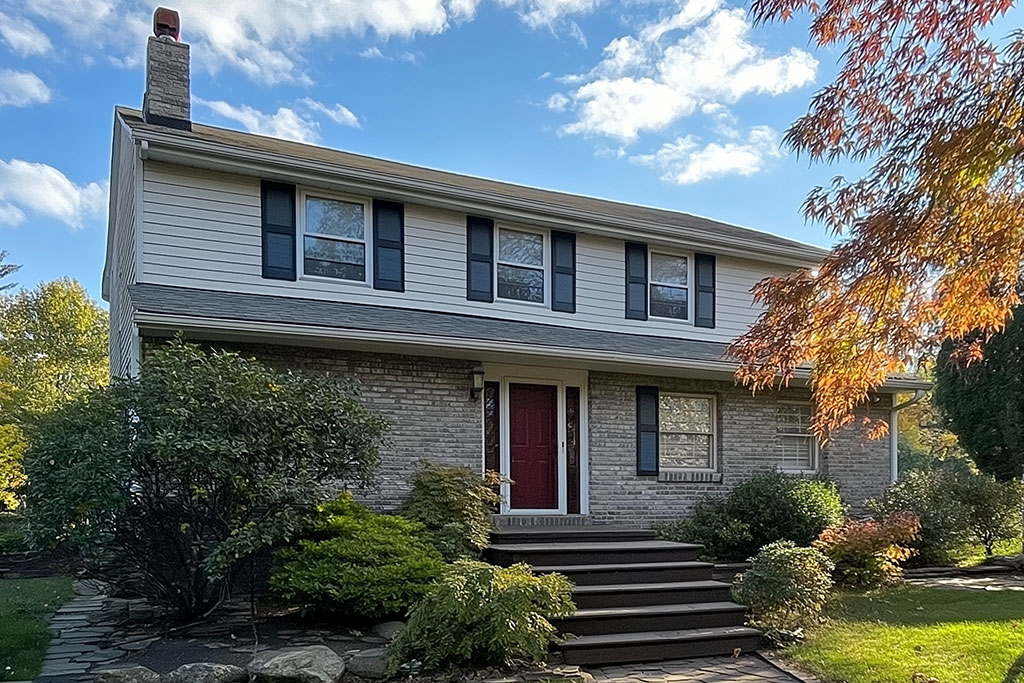Should You Sell Your House or Rent It Out?
As a homeowner, deciding whether to sell your house or rent it out is no small feat.
While the former may free up cash and eliminate your property management responsibilities, the latter could provide a steady income stream and potentially allow you to build long-term wealth. Ultimately, your choice will depend on several factors, including your financial situation, the current real estate market, and your future plans.
To help you sort through it all, check out this guide to the pros and cons of each option, the keys to consider, and why consulting a real estate agent offers the best path to making the optimal choice.

Selling your home
Deciding to sell could be a tempting avenue for the fast liquidity it provides, but it isn’t all rainbows and sunshine. Make sure to look at the whole picture to determine if it’s truly the most lucrative strategy for you based on the current market and your life goals.
- Immediate cash flow: Selling provides a lump sum of cash that can be used to pay off debt, make investments, or fund other priorities.
- No landlord responsibilities: You don’t have to worry about finding tenants, maintaining the property, or handling repairs.
- Avoid depreciation risks: If you expect home values to drop in the future, selling now can protect your equity.
- Loss of long-term investment potential: By selling, you miss out on potential property appreciation and passive rental income.
- Selling costs: Realtor commissions, closing costs, and potential capital gains taxes can reduce your profit.
- Market timing: If the market softens during the selling process, you might not get the price you expect.
Renting out your home
Likewise with renting, there are equal downsides and benefits to keep in mind. It’s all about assessing where your priorities lie and what best aligns with your financial endeavors.
- Steady income stream: Monthly rental payments can cover your mortgage or provide extra income.
- Build wealth over time: As tenants pay down your mortgage, you’ll build equity while benefiting from property appreciation.
- Tax benefits: You can deduct expenses like mortgage interest, property taxes, maintenance, and even property management fees.
- Landlord responsibilities: Being a landlord comes with potential challenges, including tenant disputes, maintenance, and vacancies.
- Market risk: Rental demand could decrease or property values might stagnate, reducing your return on investment.
- Up-front costs: Preparing your home for tenants (repairs, upgrades, inspections, etc.) may require significant initial expenses.

Top factors to consider
As you can gauge from the pros and cons lists, you’ll want to assess a number of different areas when coming to your decision. Here’s a closer examination of some of the most impactful ones to consider.
The current real estate market
Understanding the real estate market is a critical first step—the decision to sell or rent often hinges on the market conditions in your area. If home prices are currently high but starting to plateau, selling might yield a significant return. On the other hand, if there’s strong rental demand, leasing out your property could offer lucrative income. For example, consider recent national trends:
- Home prices: According to the National Association of Realtors® (NAR), the median existing-home sales price in September 2024 was $404,500, reflecting a 3 percent year-over-year increase. However, “three out of four major U.S. regions registered sales declines,” signaling a shift to a more balanced market.
- Demand for rentals: The rental market remains competitive. Per Zillow, rents have bumped up 3.3 percent year over year as of October 2024. Meanwhile, vacancy rates are hovering around 6.8 percent, as reported by Apartment List, indicating demand may be waning slightly.
The state of your home
Whichever route you take, you’ll need your property be in good condition to garner the best sales or rental price. If it requires major repairs or upgrades, you’ll have to weigh those up-front costs against the potential return on investment. For instance, renting may primarily require fixes like patching up the roof and fixing the plumbing, while selling may also include landscaping, deep cleaning, and home staging.
Personal circumstances
One of the biggest considerations from a personal angle is whether you can handle the financial implications of each option. As an example, if you’re still paying off a mortgage, will rental income cover all your expenses, including property taxes, insurance, and maintenance? Related to this are your general goals. Are you looking for immediate liquidity to fund another purchase, or do you want to hold onto the property as part of a long-term investment strategy? Your decision might also depend on whether you see yourself returning to the home someday.

The secret to success: working with a real estate agent
Whether you choose to sell or rent, there’s no understating the value of partnering with a real estate agent, who can provide expert insight to help you navigate this critical decision. For one, they can conduct a comparative market analysis (CMA) to give you a clear picture of your home’s value in the current market, both as a rental property and a sale, to assess which may have greater outcome and better ensure that you’re pricing it competitively.
Agents are also experts in marketing and negotiation. If you choose to sell, they’ll craft a strategic plan to attract the right buyers and then discuss offers on your behalf. And if you opt to rent, they can guide you in setting an appropriate rental price and even help you find reliable tenants. Further, many agents offer property management services or can connect you with trusted professionals to handle tenant placement, maintenance, and rent collection.
This is only a handful of the benefits a real estate agent can provide. If you’re struggling to decide the right path, don’t hesitate to reach out to one near you. With their local expertise, they can help you take the steps you need to begin tackling your goals, whatever they may be.


















